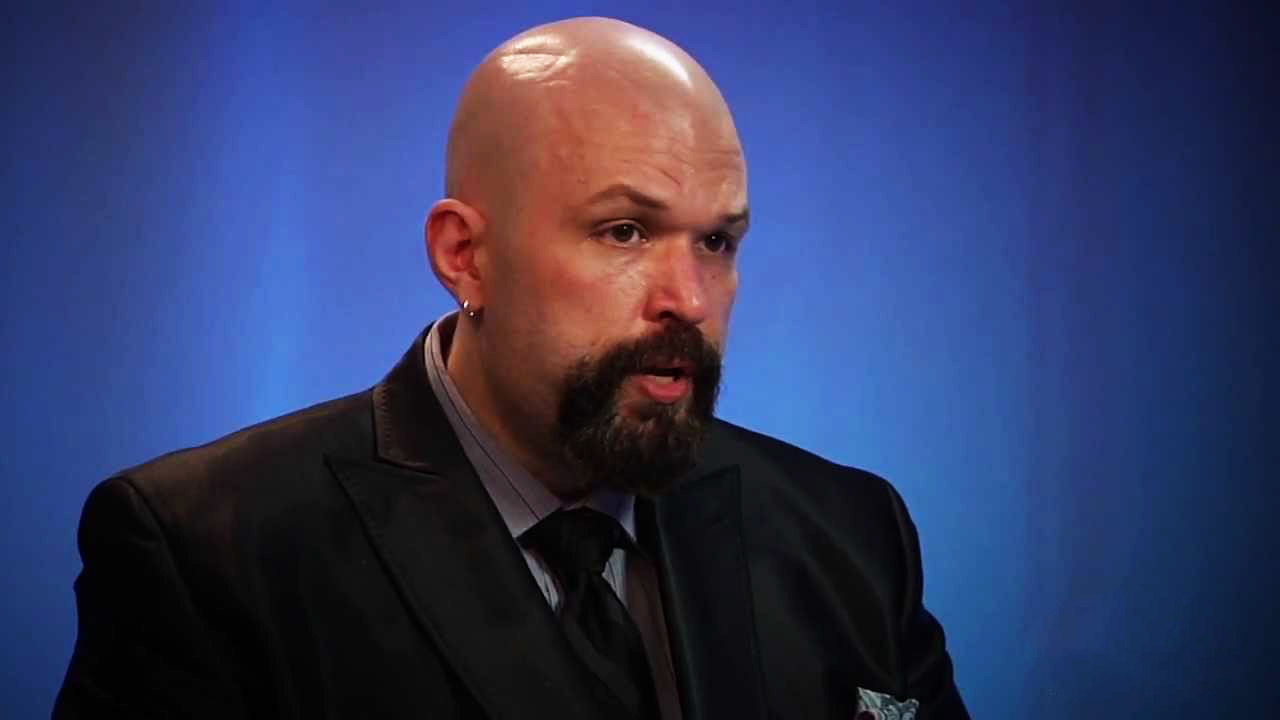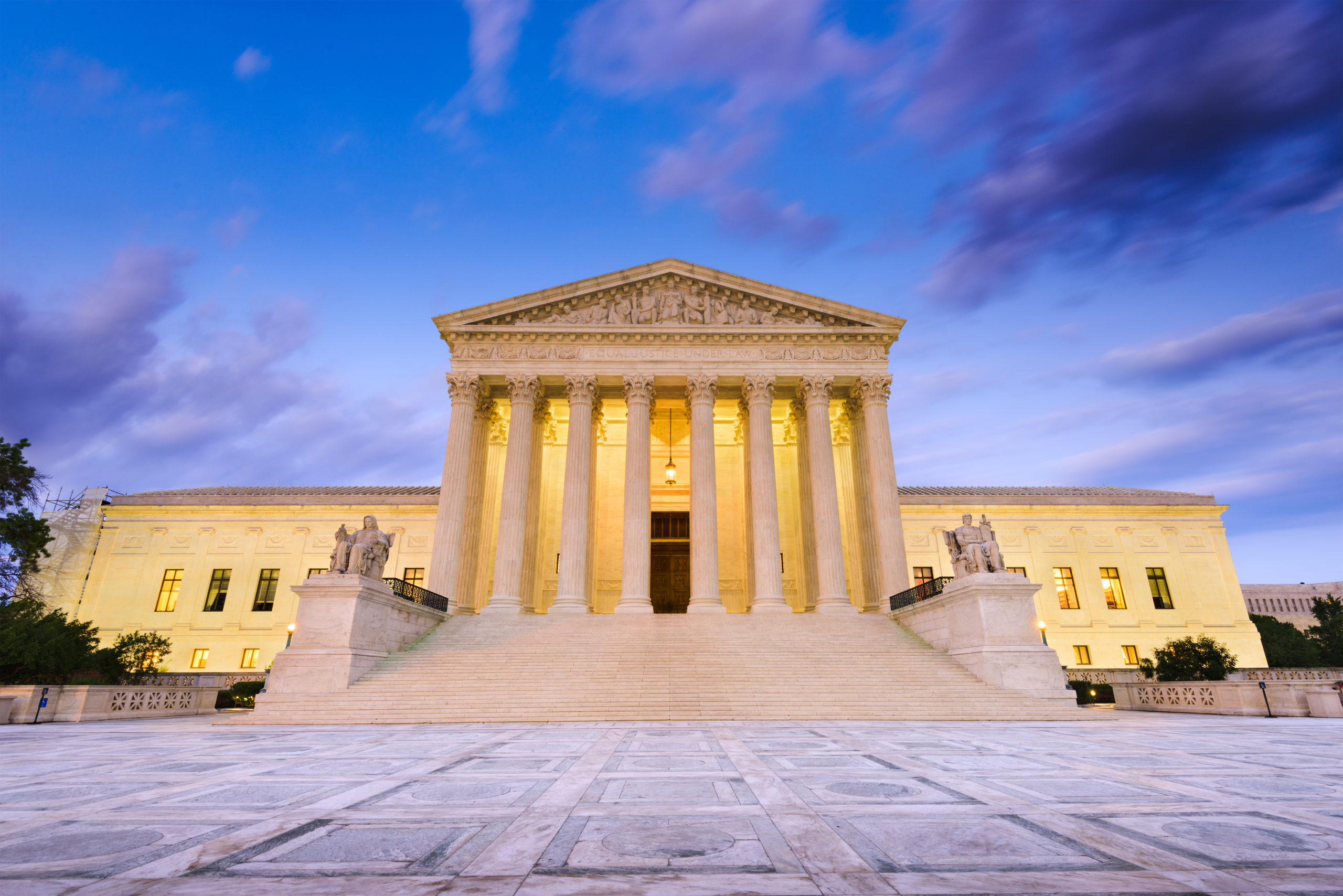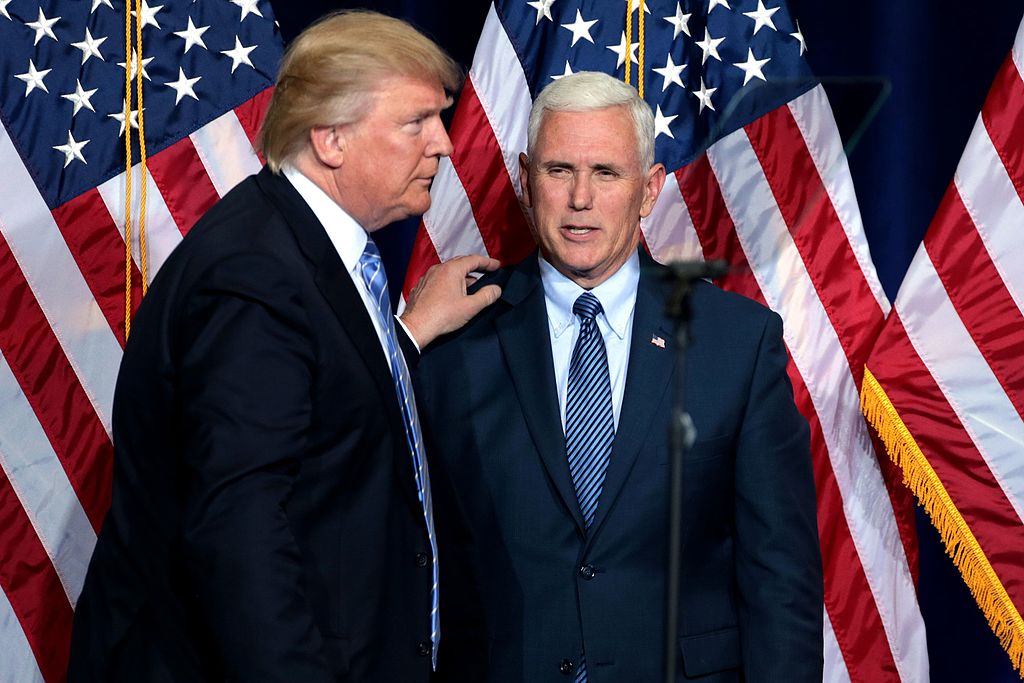Abortion rights, women of color, and LGBTQIA+ people are under attack. Pledge to join us in fighting for gender justice.
Gorsuch’s Blindspot: Understanding the Law’s Impact on Women
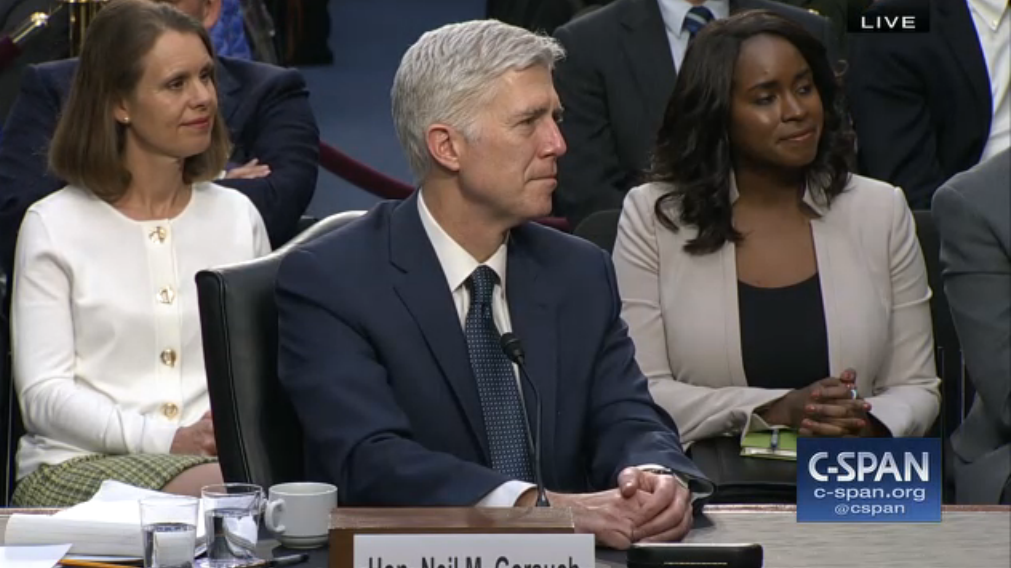
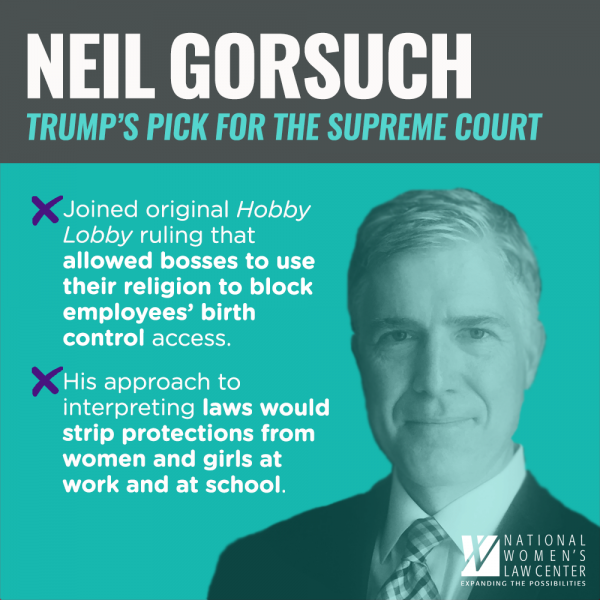 “A judge is there to make sure that every person, poor or rich, mighty or meek, gets equal protection of the law.” This declaration, made by Neil Gorsuch on the second day of his hearing, describes a profound principle in our legal system—courts are meant to be the great equalizer and protect everyone. But when you take a closer look at Gorsuch’s record – and what he ended up saying when pressed by Senators during his hearing – you find that Gorsuch actually doesn’t believe this. Instead, the “person” he thinks deserves our law’s protections is an institution like a for-profit company, not an individual, and certainly not a woman trying to access reproductive health care.
“A judge is there to make sure that every person, poor or rich, mighty or meek, gets equal protection of the law.” This declaration, made by Neil Gorsuch on the second day of his hearing, describes a profound principle in our legal system—courts are meant to be the great equalizer and protect everyone. But when you take a closer look at Gorsuch’s record – and what he ended up saying when pressed by Senators during his hearing – you find that Gorsuch actually doesn’t believe this. Instead, the “person” he thinks deserves our law’s protections is an institution like a for-profit company, not an individual, and certainly not a woman trying to access reproductive health care.
Nowhere is this more obvious than Gorsuch’s approach to two cases brought by employers claiming a violation of their religious beliefs because their employees were guaranteed no-cost insurance coverage of birth control.
In the first case, Hobby Lobby, Gorsuch joined the Tenth Circuit holding that a nationwide craft store chain with more than 13,000 employees could be considered a “person” with religious beliefs under the Religious Freedom Restoration Act (RFRA). Then he agreed that the corporation’s religious beliefs deserve the law’s protection, and so tens of thousands of workers lost insurance coverage of some forms of birth control because of their bosses’ religious beliefs. This put not only their health at risk, but also their economic security and future. Access to contraception allows women to plan their lives and their futures, and the birth control benefit relieves women of a steep financial burden, since one of the most effective methods of birth control can run as high as $1000 in upfront costs.
The Tenth Circuit decision that Gorsuch joined acknowledges in one sentence that taking this benefit away from women will harm the female employees – “Of course, employees of Hobby Lobby . . . would face an economic burden not shared by employees of companies that cover [contraception].” But then the court disregards that burden and it even goes so far as to say that promoting gender equality and public health – the very goals of the birth control benefit – are not compelling government interests.
Gorsuch’s separate concurring opinion was stunning in its refusal to even acknowledge the health impact and financial burden on the women who would lose insurance coverage under his approach.
Ultimately, Hobby Lobby reached the Supreme Court where the Court made clear that courts must take into account the effect on women workers. This stands in sharp contrast to the decision by the Tenth Circuit, which disregarded the women workers, and Gorsuch’s concurrence, which gave the workers no mention at all. And unlike the Tenth Circuit majority that included Gorsuch, the Supreme Court assumed the benefit forwarded a compelling interest, and five Justices explicitly affirmed that the birth control benefit advances a compelling interest in women’s health and well-being.
During his Senate Judiciary Hearing, several senators tried to question Gorsuch on his failure to consider the female employees impacted by the Hobby Lobby decision. Several times, Gorsuch tried to dodge the question. When pressed, he claimed that he did consider the impact on women “very closely. very carefully.” But there was no further discussion of how or where that consideration came into play.
His insistence rings hollow. That’s especially true in light of the fact that he had another opportunity to consider the effect on women when they are denied birth control coverage. In Little Sisters of the Poor v. Burwell, the Tenth Circuit again considered a challenge to the birth control benefit, this time from non-profit organizations that were already given an opt-out but wanted to block the insurance companies from providing the coverage to women directly. These non-profit organizations claimed that even the process of opting out – signing a form and sending it in – burdened their religion.
After the Tenth Circuit decided against the objecting employers, the court decided not to review the decision. Gorsuch joined a dissent – he wanted to give the law’s protection to these organizations, a view that went against 8 of 9 other circuit courts to consider the question. And despite the fact that the Supreme Court’s Hobby Lobby decision made clear that as part of RFRA’s balancing test courts must consider the impact on women, the dissent Gorsuch joined in Little Sisters did not address the women who would lose essential birth control coverage if their employers’ claims prevailed. The dissent was dismissive of any impact on individuals, declaring that this case was about “an issue that has little to do with contraception and a great deal to do with religious liberty.”
In other words, the women don’t need the law’s protection; only the objecting employer does. When asked about these cases at his hearing, Gorsuch doubled down on the importance of protecting corporate entities like Hobby Lobby. He justified his reasoning in the case by explaining “Hobby Lobby came to court and said we deserve protections too, we’re a small family held company, small number of people who own it….”
So despite Gorsuch’s professed high-minded concept of the law protecting everyone, in reality, he does not extend that protection equally to everyone.
For women, as for so many groups historically shut out of the halls of power, the courts have been crucial to securing our most cherished legal protections. But in order to continue to give meaning to those rights, the Supreme Court justices must continue to give women an equal voice. We cannot afford to have a justice with a record of doing the exact opposite. This is one of many reasons that Senators should reject Gorsuch’s nomination.


